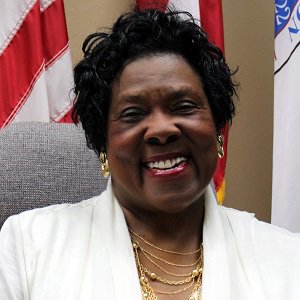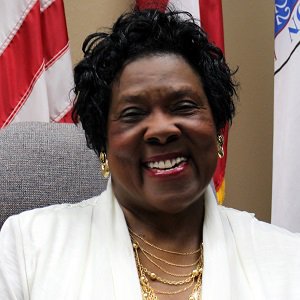About this Series: Throughout the month of February, "What It Means: A Black History Month Series" will tell the story of leaders within Newton County's Black community, while highlighting the importance of Black History Month and acknowledging the continued progress toward reaching equality.
COVINGTON, Ga. — When former Covington City Councilwoman Hawnethia Williams worked as a teacher, she said there were no textbooks with a “comprehensive rendering of Black history.”
In order to teach about Black history in her social studies class, she spent extra time conducting her own research to prepare lesson plans that were inclusive.
“I wanted to emphasize in my class that Black history and its importance is not synonymous with suffering, but is instead tantamount to perseverance, achievement and tenacity,” Williams said.
“Despite today’s opposition to teaching critical race theory, it is important to give all students the facts about Black history and their contributions to American society,” she said.
That is one of the many reasons Black History Month is so important, Williams said. It is more than a celebration. It is about educating and raising awareness about the Black community’s struggles in addition to achievements.
“Black History is important to me because it highlights not only the experiences but the courage that allowed those before me to impart wisdom on to their own and future generations,” Williams said.
“Black History Month is important because it is woven into the fabric of American History and can guide the future by helping us to learn lessons from our past … The importance of Black History Month is helping to insure that history is more inclusive, even though it is the shortest month of the year. I believe that Black history should be a part of American history throughout the year; therefore, this allows for all students to learn about Black history within the education system. Black History Month can raise awareness for past events. No one deserves to be misrepresented. Black History Month is more than a celebration of Black heroes and heroines, but learning about the struggles and injustices of these persons. Despite many adversities they met those challenges with courage not only in the past but also today, paving the way for ordinary people during extraordinary things.”
Williams said there were many Black men and women, “who did not let oppression, rejections, racial bias and violence against them stop them from pushing forward with resilience and spirituality,” that inspired her to pursue a role in leadership.
Williams said her father, Nathaniel Mitchell Sr., was one she admired most. Mitchell was a minister and was principal of Washington Street School before integration.
Like her father, Williams earned an undergraduate degree education from Clark College — Now Clark Atlanta University. She also earned a master’s degree from Georgia State University. Mitchell had earned a master’s degree from Tuskegee Institute in Alabama, “despite difficult times of segregation,” Williams said.
“While at Clark, I always had my father in the back of my mind in terms of my determination to do well,” she said. “He and my mother (Ruby Mitchell) were my constant encouragers and supporters in every way. My parents believed in education as the way to a successful life.”
Williams said her father’s influence molded her into the type of teacher and leader she later became. Williams worked more than 30 years in education. She taught in Pike County before integration; Monroe-Area High School for more than 20 years; and then joined staff at the “original” Newton High School before retiring in 2001.
“I wanted to be like my father in being a hands-on teacher that had a major positive impact on my students,” she said. “Even my desire to run for Covington City Council was steeped in my father’s leadership. I wanted to be a servant as he had always been — always doing for others. During my entire 16 years as a Covington City Council member, I have always strive to do as much as I could for others carrying the legacy of my father with me.”
Another “main encourager” for Williams was the late T.K. Adams, who she described as an “icon of Newton County.”
“During the years of my teaching and as a Covington City Council member, [Adams] would always say to me, ‘Muh and Daa (as my parents were affectionately called) would be so proud of you,’” Williams said. “My life has been, and still is, propelled by so many loving people. As my daddy used to say, ‘No man (or woman) is an island. You didn’t get here by yourself.’”
Though retired from teaching and public service, Williams still strives to be an influence in the community she grew up, working to continue the improvement of the Black community’s quality of life.
“In many ways the quality of life for many Blacks in Newton County has and is quite positive (e.g. jobs, housing, leadership positions),” she said. “But unfortunately, there are many Blacks whose economic situations are still somewhat inadequate, such as inadequate housing that often leads to generational poverty and entrance into crime and esteem issues.”
Many families have persevered in spite of “economic trials” to provide a decent life for their families, Williams said, but there is still an economic divide between persons of color and other groups.
“Many Blacks in Newton County have been able to enter the middle class and also earn undergraduate and advance degrees, therefore receiving higher wages,” she said. “However, these outward signs of improvement mask deep inequities such as fewer opportunities to achieve health and well-being.”
Despite Newton County being a wonderful place to live, work, play and raise a family, Williams said “great disparities” remained. However, she and others are trying to make a difference.
“I, along with many other concerned Black residents, am continually talking to others about having pride in the neighborhood regardless of their economics,” Williams said. “This pride translates to doing better in how you carry yourself, so that young people will want to emulate that kind of behavior. Many older persons before me used to repeat to us as children, ‘Your attitude determines your altitude’ — in other words, how high you can go.”





